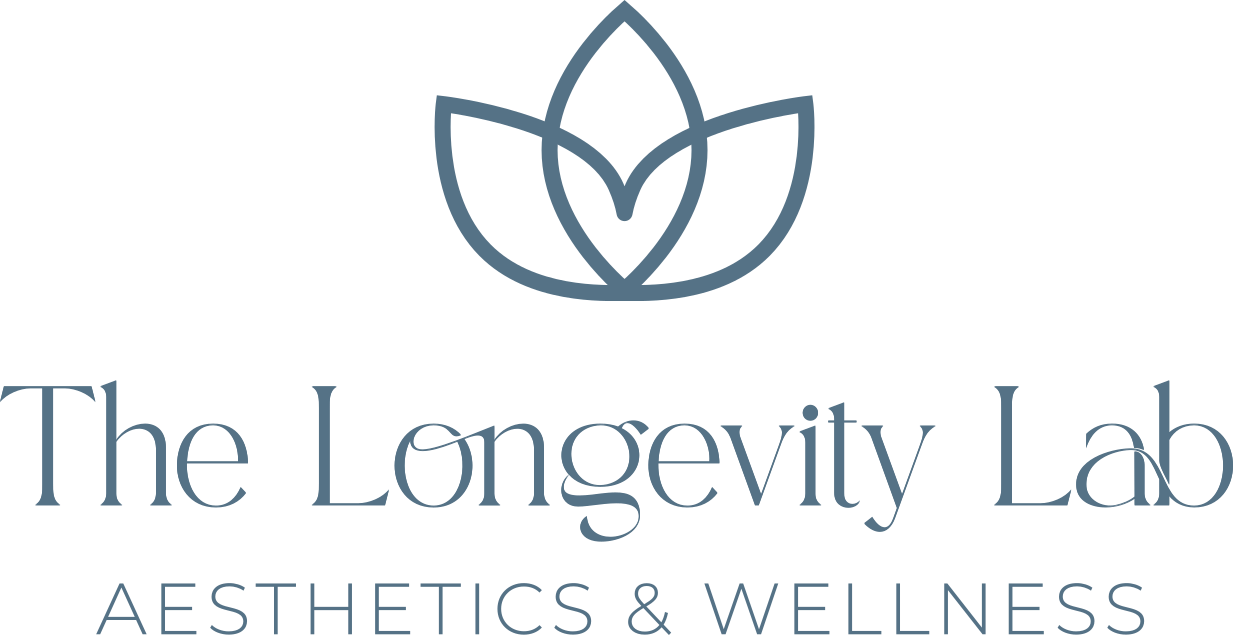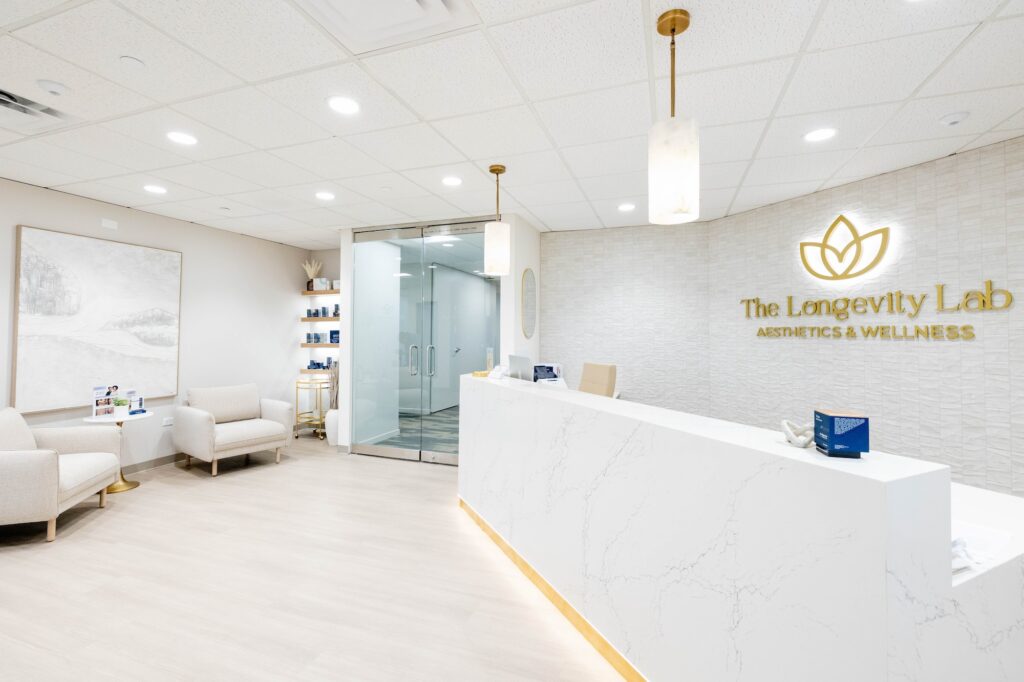
Hormones play a crucial role in almost every biological function. From your mood to your metabolism, hormones are major players. Any disruption to these messenger molecules—even minor deficiencies—will affect your day to day. Produced in the brain, sex organs, and gut, hormones are essential to your life.
Through in-depth research, education, and first-hand experience, we’ve seen the positive impact hormone therapy can have on people. For many of our patients, hormone therapy has been transformational for their relationships and well-being. Keep reading to discover the causes of hormone imbalance and its prevalence, as well as how bioidentical hormone therapy can help.
Hormone Imbalance Causes
Hormone imbalance is not a new problem. Researchers began connecting disorders like those of the thyroid and pancreas with hormone deficiencies as early as the late 19th century. There are many factors that can lead to hormone imbalance, including:
- Age (puberty, menopause)
- Pregnancy
- Stress
- Certain medications
- Steroid use
- Tumors, adenomas, or other growths
- Injury to an endocrine gland
- Autoimmune conditions
Age
Age is the most prevalent cause of hormone imbalance because everyone ages. Stages of aging, like puberty and menopause, produce significant shifts in hormone levels.
Puberty
During puberty, a person’s body is transitioning into adulthood. From physical growth and intellectual development to sexual function and reproductive maturation, many things are changing. As a result, an influx of hormonal variations can cause several negative symptoms. In some cases, these hormonal changes can be quite dramatic.
Menopause
Like puberty, menopause is the body’s way of adjusting to fit a different purpose. Because pregnancy is no longer your body’s goal, estrogen and progesterone production decrease. This change causes most symptoms menopausal women experience. Fortunately, when you get bioidentical hormone therapy in Denver from The Longevity Lab, we can provide relief from those symptoms.
Pregnancy
While pregnant, your body re-optimizes for its new goal of carrying a pregnancy to term and caring for the infant after delivery. Pregnancy causes a significant increase in estrogen and progesterone levels. These altered hormone levels linger after delivery and can present challenges for new mothers for years.
Stress
Chronic stress can have long-term effects on your cortisol, testosterone, and estrogen levels. Recent studies tell us nearly half of all Americans experience chronic stress. Hormone therapy and positive lifestyle changes can counteract this complication.
Certain Medications
There’s an array of medications that can cause hormonal imbalance. Among them is birth control. Many women begin birth control after the onset of puberty to prevent pregnancy, regulate menstruation, or control acne. Consequently, birth control disrupts many women’s natural hormonal cycles from a young age.
Steroid Use
While steroids can be effective, they can also cause hormonal imbalances. Steroids come in two common forms: anabolic steroids, which are often abused for gains in athletic performance, and corticosteroids, which are used as anti-inflammatory medicines. When misused, steroids can create physical and emotional problems. Hormone therapy can help individuals regain hormonal balance from steroids.
Medical Conditions
A variety of medical conditions can disrupt hormone production. Pituitary tumors, for example, can cause the pituitary gland to produce too many or too few hormones. Another example is Hashimoto’s thyroiditis, which causes the immune system to attack the thyroid gland, preventing regular thyroid hormone production. Partaking in bioidentical hormone therapy in Denver at The Longevity Lab can help offset this sort of condition.

Why is Hormone Imbalance Becoming More Common?
It’s true that hormone imbalance and deficiencies are increasing. On average, men today have 15% less testosterone than 20 years ago. In women, polycystic ovarian syndrome, caused by reproductive hormone imbalance, is becoming more common. The exact causes are complex and unclear. However, there are several factors that are theorized to have contributed to the escalation of hormonal imbalance.
Awareness
On one hand, more people are talking about and discovering their own hormone deficiency because of awareness. Social media and news outlets have allowed knowledge of this condition to reach individuals who never would’ve come across it in the past. This enables more and more people to not only identify the cause of their issues, but also to seek resources to improve their well-being.
Still, as we mentioned, there is a documented rise in hormone imbalance among men and women. Additionally, we are seeing younger and younger individuals in our practice with hormone issues. Extreme levels of chronic stress and the increasing frequency of prescription medication could be to blame, but what else is going on?
Alcohol Consumption
In recent years, alcohol consumption has gone up. Even after inflation, wine, beer, and liquor store sales have been increasing for decades now. Over time, alcohol abuse hampers the nervous, endocrine, and immune systems, resulting in severe hormonal disturbances. Hormone therapy and lifestyle changes can rectify this.
Pollution
A study from the University of Michigan found that certain types of air pollution disrupt sex hormones, potentially intensifying menopausal symptoms. While air pollution in the U.S. has been on the decline, it’s still a much larger issue now than prior to the Industrial Revolution. It’s possible our exposure to pollutants has only caught up to us in recent decades. Individuals exposed to particularly high levels of pollution could benefit from bioidentical hormone therapy.
Westernized Diet & Processed Foods
Food has a clear effect on hormone production and secretion. Research shows that a diet high in sugar, refined grains, and processed foods can cause several complications for your hormone levels, including:
Microplastics
The effects of microplastics on hormone levels are an emerging area of study. However, there is growing evidence that the accumulation of ingested microplastics causes endocrine abnormalities. As a result, it is likely hormone therapy will become increasingly advantageous.
Benefits of Hormone Therapy
Now that we’ve considered the wide range of hormone deficiency causes, let’s discuss the many benefits of hormone therapy. We perform bioidentical hormone therapy in Denver to provide our community with functional medicine. This means it treats your problem at the root cause through restorative care rather than merely addressing symptoms, which is better for your long-term health.
Hormones impact many bodily functions and allow them to take place properly, including:
- Metabolism
- Homeostasis
- Growth and development
- Sexual function
- Reproduction
- Sleep-wake cycle
- Mood
Therefore, improvements to your hormonal balance can result in a wide variety of benefits. These include weight loss, energy optimization, and relief from the symptoms of aging.

Weight Loss & Increased Muscle Mass
When your hormones are out of balance, your body has a harder time regulating weight and maintaining muscle mass. By supplementing your hormone levels with hormone therapy, you can lose fat and build muscle more efficiently.
Energy Optimization
Low hormone levels can lead to feelings of fatigue, sluggishness, or even trouble sleeping. By restoring your hormone levels with bioidentical hormone therapy, you can feel re-energized and sleep better, making it easier to maximize your day.
Anti-Aging
Common symptoms of aging, like menopause and decreased libido, are often a result of low hormone levels. Adding the right hormones back into your system can alleviate these common symptoms of aging and much more.
Methods of Hormone Therapy
At The Longevity Lab, we can administer hormone therapy through a few different methods. The best method for you depends on the severity of your deficiency and your treatment preference. Keep in mind, we can switch your hormone delivery method during treatment based on how it’s going.
Pellet
Our pellet-delivered hormone therapy releases hormones 24 hours a day and 7 days a week to replicate natural hormone secretion. We’ll insert the small pellet under your skin, so the hormones can be absorbed directly into your bloodstream.
This method allows for the efficient and consistent delivery of hormones to your system. As the pellets naturally dissolve over time, you can simply return to our office to have additional pellets inserted. With ongoing treatment, you can continue seeing the benefits from bioidentical hormone therapy in Denver.
Injection
We can administer hormones via injections, also delivering the hormones directly to your bloodstream for highly effective absorption. The regularity of these injections can vary based on your hormone levels.
Tablet
Hormone therapy is also available in pill form at The Longevity Lab. This method removes the hassle of pellet insertion or injection appointments.
If you’re curious about which hormone therapy method would be best for you, read our latest blog.
Hormone Therapy FAQ
What are bioidentical hormones?
Bioidentical hormones are sourced from plants and are identical to the naturally occurring hormones in your body. At The Longevity Lab, we prefer bioidentical hormones over synthetic hormones because of their superior safety profile and effectiveness.
Is hormone therapy safe?
Bioidentical hormone therapy matches your body on a cellular level, minimizing risks. However, it’s important to see an experienced, knowledgeable medical provider for your hormone therapy. Our team at The Longevity Lab has extensive education and training on hormone therapy. We take our responsibility for your health and safety with the utmost seriousness.
How long does hormone therapy take?
Most of our patients stay on hormone therapy indefinitely, simply because of how great it makes them feel. When you stop treatment, your hormone levels are likely to return to their original levels. Our patients often notice the benefits of hormone therapy after just a few weeks! Usually, peak results emerge several months after beginning treatment.
Is Hormone Therapy Right for You?
While you might not be experiencing a deficiency, chances are your levels are suboptimal. Nearly every patient we run labs on can benefit from hormone therapy. If you’ve been feeling off, try our quiz, Is Hormone Therapy Right for You?
The only definitive way to know if you can benefit from hormone therapy is to get a blood draw. We know how tough it is to take time out of your day for yourself, but this could transform your day-to-day life.

Find Out if Hormone Therapy is Right for You at The Longevity Lab!
At The Longevity Lab, fostering longevity in our patients is our driving passion. To us, longevity is not only a long life, but a comfortable and fulfilling one. Hormone therapy can relieve discomfort and create new opportunities for enjoyment. To get started with bioidentical hormone therapy in Denver, visit us for lab work, and we’ll take it from there.



